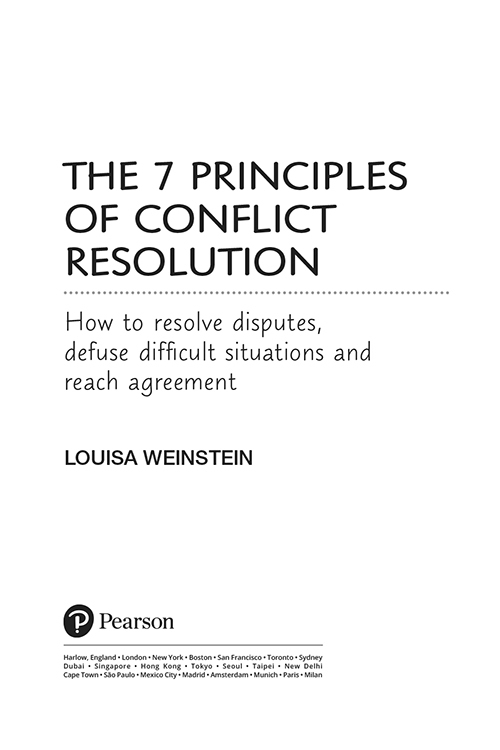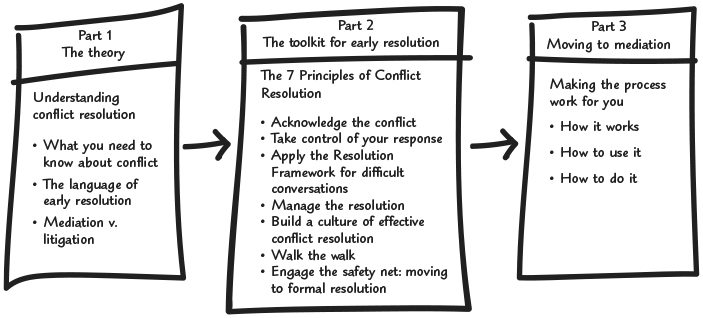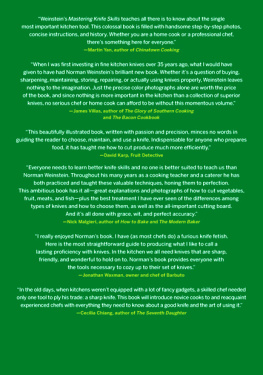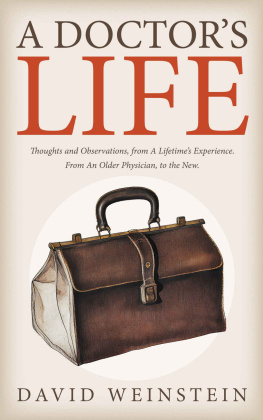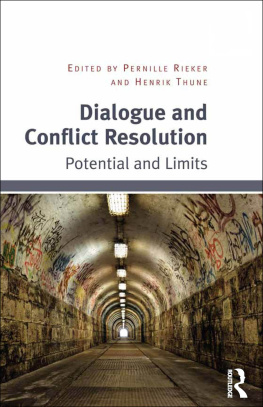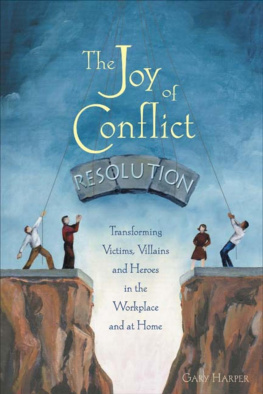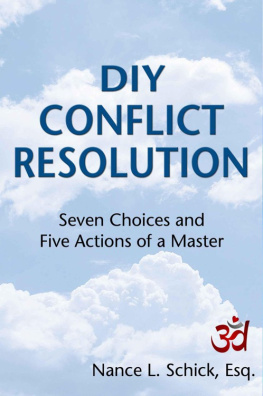CONTENTS
PART 1
THE THEORY: UNDERSTANDING CONFLICT RESOLUTION
PART 2
THE PRACTICE: THE 7 PRINCIPLES OF EARLY CONFLICT RESOLUTION
PART 3
MAKING A SUCCESS OF CIVIL, COMMERCIAL OR EMPLOYMENT MEDIATION
ABOUT THE AUTHOR
Louisa has been passionate about mediation and dispute resolution since practising law over 20 years ago where she saw how mediation provided solutions where the law fell short.
She is driven by the possibilities for innovation in the field of conflict resolution. Fifteen years of mediation experience has showed her that mediation doesnt have to be inevitable, just as litigation is no longer the only solution today. Professionals and individuals can be taught how to do it for themselves and their organisations. In this way conflict and its resolution can become a force for change and growth.
Louisas passion for advancement in resolution culture does not stop at the corporate door. Children and young adults face increasing exposure to conflict whatever their background. Louisa has designed and delivered specific training and work experience programmes for young people teaching personal conflict coaching skills to build resilience, thrive through online and offline conflict and break glass ceilings.
Louisa heads up The Conflict Resolution Centre bringing together a team of exceptional mediators and trainers serving clients across various sectors (media, property, IT, technology, professional services, financial services, charities) covering a range of issues including corporate and commercial, employment, workplace, property, inheritance, personal injury and intellectual property. Louisa is also an Associate Tenant at Doughty Street Chambers. She is married with two daughters who are her perpetual and constant teachers.
INTRODUCTION
What this book will do for you
The principal mission of this book is to support you and the people around you to start thriving in the midst of the conflict situations you encounter in your day-to-day life and avoid them resulting in business and relationship breakdown and court.
Specifically, The 7 Principles of Conflict Resolution will support you to get what you want and need to transform the range of conflict situations that most of us encounter during our professional and personal lives into situations that serve us.
Conflict can be simply described as the enduring condition where I disagree with you. When we see it in this way it becomes easier to accept its existence and find a way through it as a fact of life. When we think about it, we realise that justice in any given situation will mean something slightly different to each of us. When you break down the component parts of conflict, you can start to see how it arises, how it affects us and how it subsequently affects us. As a result you become more able to manage and take control of it more effectively in your life, your organisation or your community.
During the course of the book we will discuss how conflict comes about and starts to cause problems, and where the Seven Principles can be most effective. Broadly, when I talk about conflict I will be concentrating on situations where communication is difficult or broken and specifically situations where I disagree with you, or vice versa. The type of scenarios this will apply to may range from difficult conversations and negotiations to entrenched disputes of word and pen and ultimately legal battles.
What we will not cover specifically is marital breakdowns and subsequent divorce or family mediation, although the principles will be useful in these situations.
As much as possible the information provided in this book will apply internationally. However, particularly with respect to organisational and court processes, you may need to find out more about the requirements and practices of specific jurisdictions.
The focus of this book will remain firmly on finding a solution or end to the problem that the individual or individuals will be able to live with going forward. Often the test of whether a conflict has been resolved will be whether it still keeps you up at night or whether the resolution is sustainable. Whether a conflict has been resolved will always depend on the individuals involved and can include:
- arriving at a formal or informal agreement
- receiving an apology
- agreement on a way forward to rebuild a relationship
- being able to let go of resentments
- the end of an argument.
Ultimately, the aim of this book is to help individuals and conflict resolution practitioners to achieve successful results in difficult circumstances without compromising reputation, dignity or self-respect.
Often in such situations conflict can follow a typical life cycle. This book will explain each stage of that life cycle so you know what to do when. By providing tools for situations ranging from difficult conversations and negotiations to entrenched deadlock, you should achieve the best results at all stages.
Crucially, it allows you to negotiate positive outcomes and avoid the personal and commercial consequences of destructive relationship breakdown, where possible, without the need to go to court or litigation.
Through The 7 Principles of Conflict Resolution , you will be given a comprehensive route-map to be more successful personally and professionally. The three parts of the book serve as building blocks to resolution, whatever stage you find yourself at.
.
takes you through the skills and tools you will need to address and resolve conflict and build on your mindset. In particular, it will support you through the process of modifying your approach to difficult conversations and negotiations and enable those around you to do the same.
Finally, enables you to make the best use of mediation (should you need it) as a tool in the conflict resolution process. It acknowledges mediation not as a signal that early resolution has failed, but as the appropriate solution in certain, often complex, circumstances. It allows you to be in charge of that process and be equipped to use it effectively as opposed to being victim to it.
The focus, throughout will be to provide you with tools and strategic solutions which sit behind the Seven Principles to:
- develop clear, structured negotiation strategies with clients, colleagues, partners and other adversaries to proactively deal with differences of opinion
- lead and coach others through difficult conversations and negotiations
- develop existing mediation and negotiation skills
- become more effective at managing your own behaviours, emotions and actions in highly charged situations
- explore and test new mediation and conflict coaching skills
- manage a diverse workforce by better understanding their various communication styles
- turn around entrenched positions and relationships to enable conversation and resolution
- create a resolution-focused culture in the workplace
- use mediation as an effective alternative to court or tribunal.
What this book will do for the people around you
Often, in disagreements or conflict situations, we want the other person to change. We focus on how and why they should change and how to make them change. Often this creates more aggravation and upset and can even make the situation worse.
By practising the principles and using the tools carefully and patiently, you will find that other people will start responding differently to you and the situation will start to change. So, instead of being frustrated that the other person or people will not change, you will start to be able to transform the situation through your own actions and give others the opportunity to do the same without compromising integrity, values or principles.

